Speakers and Topics Announced for SOF Hartford Conference; James Warren Will Keynote
More than two dozen speakers will present papers at the upcoming SOF Conference at the Mark Twain House & Museum in Hartford, Connecticut, October 17-20, 2019, on subjects ranging from new discoveries about J. Thomas Looney to arguments about group authorship, pen names, stagecraft, and the politics of poetry. Be sure to register for the conference by September 1 to save on your registration fee.
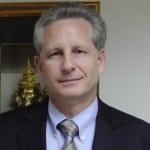
James Warren will deliver the conference keynote address, “Reclaiming the Oxfordian Past,” highlighting his groundbreaking research over the past year on J. Thomas Looney and the first quarter century of the Oxfordian era. Warren has not only edited J. Thomas Looney’s “Shakespeare” Identified and “Shakespeare” Revealed: The Collected Articles and Published Letters of J. Thomas Looney, but has been diligently collecting and cataloging Oxfordian archives in English university special collections.
Featured speakers include Dr. Richard M. Waugaman, who will pose the essential question, “Did Shakespeare Write Shake-Speare? Internal and External Meanings of Pen Names.” Waugaman will survey relevant recent studies of anonymous and pseudonymous literary works. Emeritus Professor Bryan Wildenthal will continue his case-by-case discourse on “Early Shakespeare Authorship Doubts,” and Don Rubin will speak on the “New ‘Field’ of Shakespeare Authorship Studies: A Critical Look at the work of Taylor, Leahy, John Florio and Edward de Vere.”
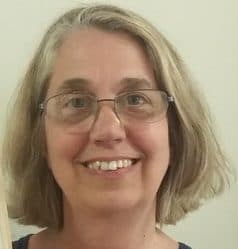
Emeritus Professor James Norwood is prepared to re-present “Mark Twain and ‘Shake-Speare’: Soul Mates,” a revised and updated version of his brilliant 2014 paper, plus a bonus paper, “A New Way of Looking at Shakespeare’s Stagecraft.” Professor Alice Eaton of Springfield College will lead a panel on “Teaching the Shakespeare Authorship” with three graduate student double majors in English and Education presenting their research, and SOF Trustee Theresa Lauricella will speak on her experience teaching “Shakespeare in Community College.”
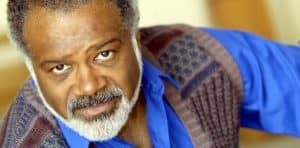
A number of prominent theatre professionals will also be present to discuss their creative endeavors inspired by Shakespeare. Keir Cutler will perform his acclaimed one-man show based on Mark Twain’s satire, “Is Shakespeare Dead?” and Ted Lange, the first American black actor to be featured in a film version of Othello, will discuss “The Cause, My Soul, The Prequel to Othello,” a verse drama by Lange that won the NAACP Theatre Award for Best Play of 2017. The Cause, My Soul “remains true to the characters crafted by Shakespeare and explores the flirtation, romance, comedy, and the drama of Othello’s journey into love and politics that preview Shakespeare’s play, Othello.” Professor Sky Gilbert will expose the dubious recent Stratfordian arguments about Double Falsehood, emphasizing the stylistic differences between Double Falsehood and Shakespeare’s work, and SOF Public Relations Director Steven Sabel will deliver his dramatic argument, “Shakespeare: Playwright and Stage Director—The Brilliance of the Bard’s Stage Directions to Actors.”

Perennial favorite Hank Whittemore, winner of the Dark Lady debate at the Oakland SOF Conference, will speak on “The Launch of the Pen Name: Who Knew What and When?” focusing on the roles played by John Whitgift, Archbishop of Canterbury, Richard Field, printer and publisher of Venus and Adonis, Henry Wriothesley, 3rd Earl of Southampton and the dedicatee of Venus and Adonis, William Cecil, Lord Burghley, and Queen Elizabeth. Mark Anderson, author of “Shakespeare” by Another Name, will narrate “The Unlikely Bardographer,” the story of a science-educated freelance journalist who wrote the first popular literary biography ever of the man who, more and more evidence now suggests, was “Shakespeare.” Ben August will speak on his experience placing the winning bid on a book once owned by the Earl of Oxford.
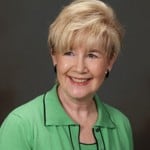
Former SOF President and attorney Tom Regnier will speak on Shakespeare’s intent when he wrote “Kill All the Lawyers.” Regnier and Shakespeare Oxford Newsletter editor Alex McNeil will conduct a remembrance for Supreme Court Justice John Paul Stevens. Newcomer Marc Lauritsen, an attorney and educator who has taught at five law schools and is an expert in knowledge systems, will present “Mapping the Authorship Arguments,” addressing the conundrum of how we might get beyond “words, words, words.” Bonner Cutting, author of Necessary Mischief, will present her latest historical research on “Connecting the Dots: How a man who could scarcely write his name became revered as the greatest writer in the English language.” Jan Scheffer will travel from the Netherlands to offer a tribute to the late Ron Hess.
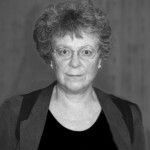
Stephanie Hopkins Hughes, Founder and General Editor of The Oxfordian for a decade, will address the question of “Why is it taking so long to get the truth out?” Hughes states: “Surely this is a question that must be answered if we’re to approach the Academy from anything but the impenetrable walls of their ivy-covered fortress. I have the answer to this, and if it isn’t pretty, it does have the virtue of making a very great deal of sense.” One of Hughes’s former contributors, Dr. Earl Showerman, will deliver the second part of his literature review of “Shakespeare and the Greeks” with a discourse on Professor Tania Pollard’s seminal study, Greek Tragic Women on Shakespearean Stages, winner of the Roland Bainton Book Prize. Dr. Marty Hyatt will discuss the mysterious origin of the heraldic star of the Earls of Oxford in “A Mullet is Born.”
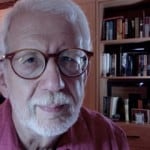
There will also be a panel of presenters discussing the plans for celebrating the centenary of the publication of “Shakespeare” Identified. Presenters will include Kathryn Sharpe, Chair of the SI-100 Committee, Linda Bullard, coordinator of the Centennial Launch on March 4, Heward Wilkinson on the De Vere Society centennial plans, and Earl Showerman on activities in Ashland, Oregon in the lead-up to next year’s SOF conference, September 30 through October 4, 2020. Robert Meyers will engage panelists and audience members in a discussion of strategies to leverage the 100th anniversary of the publication of “Shakespeare” Identified to bring about a breakthrough in the Shakespeare authorship debate. Meyers will also present “Was It Really William?”, a talk and slide show on how to use narrative and visuals to present the Oxfordian position to audiences unfamiliar with the issue.
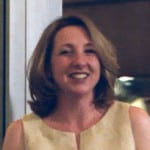
Several presenters will focus on Shakespeare’s poetry, including William Boyle on “Why One Word, in One Sonnet, Matters,” a political interpretation of the word “misprision” in Sonnet 87. Cheryl Eagan-Donovan will speak on “The Lives of Poets in Late 16th and Early 17th Century London,” John Hamill will propose a theory for the “Rival Poet” in “Southampton and the Devereux Family,” and Peter Dickson will present on “The Politics of Venus and Adonis.”
In “Oxfordians Need to Become Post-Modernists,” Heward Wilkinson will explore how the peculiar relationship between character and author is an illustration of the “death of the author” and the “deconstruction of the subject.” Shelly Maycock will speak on “Floating ‘the Sweet Swan of Avon’: An Oxfordian Reading of Jonson’s First Folio Metaphor,” examining the evidence that Jonson’s use of “sweet swan,” in the encomium to the 1623 Folio may also refer to Oxford. Finally, Coppin State University Professor Roger Stritmatter, editor of the Brief Chronicles editions, including the invaluable Shakespeare Authorship Sourcebook, will deliver an Oxfordian interpretation of As You Like It.
This will be an extraordinary, historical opportunity for SOF members to participate in a momentous conference and theatrical performance in the heart of an American treasure, Mark Twain’s House!
Membership dues cover only a fraction of our budget, including all our research, preservation and programming. Please support the SOF by making a gift today!
Blue Boar Tavern: Wassail Q&A
Tuesday Dec. 17, 8pm E / 5pm P
Sign up below for event invites!
